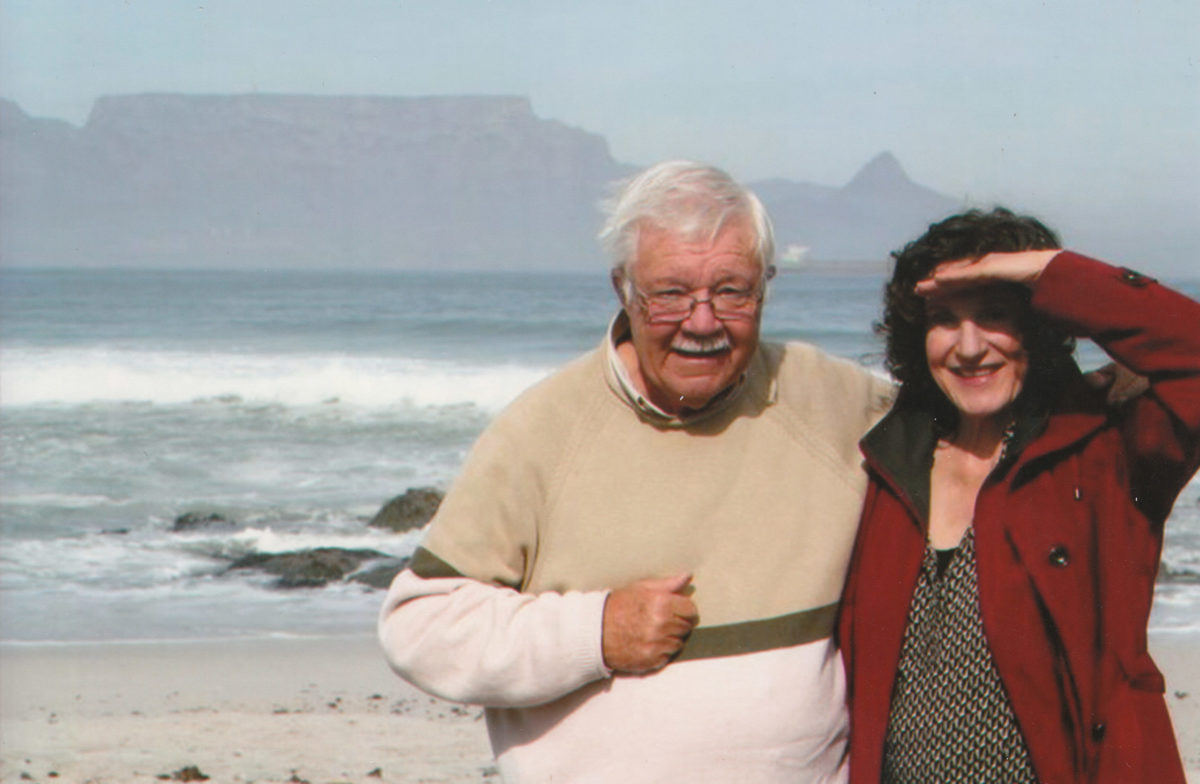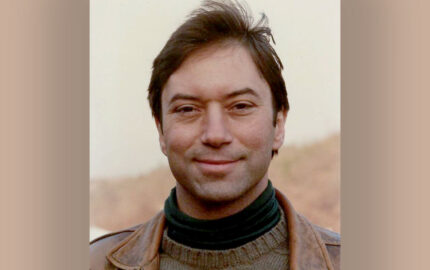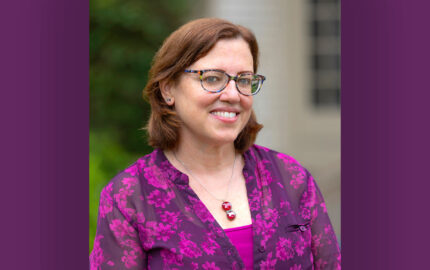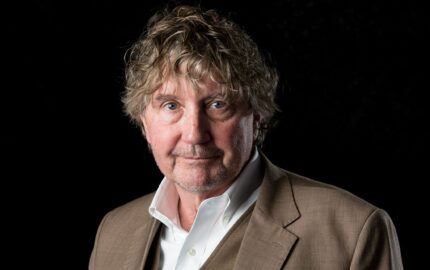Nieman Fellows from the class of 1977 remember their friend Cassandra Tate, an accomplished journalist, historian and author who died on June 10, 2021.
Paul Solman, business and economics correspondent for “PBS NewsHour”
Since she was a superlative writer (and superlative journalist as well), Cassandra should speak for herself.
Here’s how she described her first encounter with Harvard, in a eulogy she wrote for the great Bob Maynard:
“I was pretty much a rube from Idaho when I met Bob. A college dropout. I had never been east of Albuquerque. I worked on a newspaper with a circulation of less than 30,000. Bob was a columnist and editorial writer for The Washington Post, a man who’d interviewed presidents. But he had seen something in my writing that he wanted to nurture. He was the one who picked my application out of the pile and said yes, and that decision changed my life.
“We met for the first time during my Nieman interview, exactly 30 years ago last month. At the time, the Nieman House was an old mansion on Trowbridge Street. The interviews were held in an upstairs ballroom, at the top of a long winding staircase. You waited downstairs until your name was called, then you walked up the stairs and into the ballroom. The first test was how hard you were breathing by the time you got to the top of the stairs.
“I was as nervous as I’d ever been in my life. It didn’t help that I was — uncharacteristically — wearing high heels. So there I was, out of breath and wobbly, facing a group of important-looking people, sitting on chairs arranged in a semicircle around the hot seat. It was very intimidating.
“The first thing that happened was that Jim Thompson, the curator then, asked me if I’d like something to drink. He was standing by a table loaded with every possible kind of booze, along with mixers, a few soft drinks and a pitcher of iced tea. I could have used a good strong martini but it was 11 o’clock in the morning and I didn’t want to make a bad impression. I said I’d like some iced tea, please. Jim filled a tall glass with ice, poured in the tea. Would I like sugar? Yes, please.
“This was mistake number two (after the high heels). When you add sugar to a glass already brimming with tea and ice, what you get is tsunami-like overflow. Jim handed me the glass, and the next part of my interview went by in a blur as I concentrated on getting my shaking hand to put the glass safely on the table next to me without spilling it all over myself or the floor.
“The first question that I remember came from Bob. It wasn’t a question so much as a comment. One of the stories I had submitted with my application was about a mildly crooked sheriff in Bovill, Idaho. It read like fiction, he said. I immediately forgot my nervousness and got a little huffy. ‘What do you mean, fiction? Every word in that was true,’ I said. I didn’t mean you made it up, he said; I meant it as a compliment. Oh.”
To me, a New York-bred city slicker, Cassandra was equally exotic. She was the first person I’d ever met from Idaho, from a newspaper none of us had heard of. For Cassandra, the Nieman annual stipend of $15,000 actually represented a raise. To most of us, the “mansion on Trowbridge Street” was a semi-run-down three-decker. She was, unsurprisingly, wide-eyed — yet surprisingly sharp-tongued, maybe because she’d spent some time working in a casino in the town of Jackpot (yes, Jackpot), Nevada.
When six of us embarked on a Nieman junket to Japan upon “graduation,” we were given a grand tour of the country, just emerging as an industrial powerhouse. We were taken to one mega-firm after another, invariably hosted by the CEO. Invariably, Cassandra asked: “How many women does your company have in management?” And invariably, the CEO was bewitched, bothered and bewildered by Cassandra and the question, since the highest-ranking women in the organization were probably those serving us green tea in a crouch. But Cassandra was forever undeterred, and some underling would be dispatched to find the answer, never to return.
Cassandra arrived in Cambridge in 1976: loving, open, diaphanous, crowned by a head of hair to die for. Forty-five years later, after losing it all to cancer treatment, she was chic as ever in the subsequent short cut.
In October of 2019, she emailed several Nieman classmates: “I have recently been reminded that we are all little hermit crabs, scuttling around in aging bodies that probably won’t last as long as we’d like them to. For many years, I’ve planned to make the same kind of exit that my grandmother did: die in bed at age 84 of a heart attack. My body apparently has another agenda.” But lest we despair, she concluded: “The good news is that my long-aborning book about missionaries and American Indians is in the production stage. ‘Unsettled Ground: The Whitman Massacre and Its Shifting Legacy in the American West.’ Coming soon to a bookstore near you.”
The book is out and a rival in excellence to her first masterful work, “Cigarette Wars.” They are both available. Their author is bitterly missed.
Read “A Journalist Brings Her Reporting Acumen to American History” by Paul Solman in Nieman Reports.
Hennie van Deventer, retired news executive and author, South Africa
In 2015, Cassandra and her husband Glenn travelled from Washington, on the West Coast of the United States, to the Western Cape, on the west coast of South Africa. On a Saturday they came over to our seaside village, Melkbosstrand (“Milk Bush Beach”), for a braai (barbecue) and to watch a game of rugby on our TV screen. Rugby is our national sport on these shores. We take it seriously.
How good it was to see these two compatriots again nearly four decades after our shared Nieman adventure. I reminded her how, on the first social gathering in the Nieman House on Trowbridge Street in Cambridge, she presented herself as “just a girl from Idaho.” She wanted to know if lions did really walk around in our streets. In the meantime, Cassandra obtained a Ph.D. and had become a very sophisticated woman with, inter alia, a piercing political interest.
Before the visit she wrote: “South Africa: I’m coming to you soon. Going to look at your night skies, drink your wine, climb that Table Mountain, cheer for the rugby team that my old friend Hennie Van Deventer cheers for, walk in the footsteps of some of your heroes, learn more about that spirit of Ubuntu, try to understand how far you’ve come (like my own country) and how far you have to go (ditto).”
I think she ticked most boxes. She did cheer for the Bulls from up north. They were the losing team, alas. She also made most of the opportunity quizzing her host over a glass of good South African wine on “how far you’ve come and how far you have to go.” I took the two sightseeing, visiting beautiful beaches and a serene national park as well as driving around in some suburbs: in very smart suburbs and also far-from-smart suburbs.
The latter pained her immensely. It was evident. I had to field quite a few questions about inequalities that sadly remain part of the South African way long since Nelson Mandela’s “long walk to freedom.”
After the visit Glenn reported on their behalf: South Africa has come a long way since the end of apartheid. It still faces many challenges, including power outages (“load shedding”), government corruption and waves of immigrants from other African nations, leading to xenophobic violence. The people we met were eager to talk about the problems, their views coming from a wide range of perspectives. Progress is slow but sure. It was a privilege to be there, a true Rainbow Nation with beautiful land and beautiful people.” It was a fair assessment in my eyes. It was my privilege to be one of the people who were “eager to talk”.
How wonderful it would have been to take up their kind invitation to Seattle. Unfortunately we waited too long. So often a collective error of all humans.
José Antonio Martínez Soler, founder of the Spanish newspaper “20 Minutos”
Excerpted from the blog post The Blessing of Cassandra
In the death, way too premature, of our friend and Nieman colleague Cassandra Tate (Nieman ´77), it is impossible not to remember some anecdotes that show her unique personality. She was a nonconformist, firm in her beliefs, rebellious, but at the same time tender, generous and affectionate. She was a woman ahead of her time. We saw this in her books, her articles, in her journalism and, in my case, also in those beer and cheese seminars of the Nieman Foundation of Harvard University.
Cassandra and her family were our guests in Madrid and they welcomed me in their house in Seattle when I went there as correspondent for the El País group or for Spanish TVE. Ever since I shared the Nieman year with her, we never lost contact or our mutual affection. She was generous to regale us with her creative intuition, her refusal of submission before the powerful and her good humor.
In the winter of 1977, a group of Nieman Fellows went to Canada invited by the Canadian government. Cassandra stood out for her sharp questions and criticism, with no mincing of words. On one occasion, I had the urge to nudge her elbow or touch her foot under the table to tone down her questions which, poor me, coming from Spain that was then a dictatorship, I automatically considered too aggressive or daring. Did I want to protect her? That certainly wasn’t necessary. Cassandra was valiant, almost daring, and showed no hesitation to interrogate the powerful.
A small example comes to mind. The then American ambassador in Ottawa, Thomas Enders, invited us for dinner at his home. A luxurious dinner. We were all diplomatic except for Cassandra. She criticized the unnecessary luxury, the excessive expense of high-ranking civil servants of the government of her country and, of course, the sometimes hypocritical foreign policy coming from Washington. I wanted to disappear under the table but Ambassador Enders politely endured Cassandra’s criticism and replied the best he could with evasive arguments.
Her prophecies, like those of the daughter Cassandra of the king and queen of Troy, were to come true. Not all, of course, but one stands out: the unstoppable revolution of the women of our time in their fight for equality with men. Unlike the Homeric Cassandra, our Cassandra knew how to unite the brain and the heart, reason and emotion, applying this master formula in both her personal and professional life. I joked with her at the expense of the Homeric myth: the curse of the princess of Troy. Since the Homeric Cassandra abandoned the misogynous Apollo, this tyrannical masculine god of reason punished the emotional Cassandra: no one would believe her prophecies and she was silenced and mistreated by the patriarchal logic of the powerful men of Athens. Our Cassandra was of course not punished and ignored by all but was admired and an inspiration to us all. Apollo, in turn, in today´s world is but a mere childish and irrational tyrant. The times have changed.
The life and works of my friend Tate were, in effect, an unstoppable battle against this mythological curse that has weighed down upon women for millennia. With Tate´s tenacity and creative intelligence, she knew how to convert the curse into the blessing of Cassandra. I believed in her prophetic intuitions.
Thank you, Cassandra. Rest in peace.
Paul Solman, business and economics correspondent for “PBS NewsHour”
Since she was a superlative writer (and superlative journalist as well), Cassandra should speak for herself.
Here’s how she described her first encounter with Harvard, in a eulogy she wrote for the great Bob Maynard:
“I was pretty much a rube from Idaho when I met Bob. A college dropout. I had never been east of Albuquerque. I worked on a newspaper with a circulation of less than 30,000. Bob was a columnist and editorial writer for The Washington Post, a man who’d interviewed presidents. But he had seen something in my writing that he wanted to nurture. He was the one who picked my application out of the pile and said yes, and that decision changed my life.
“We met for the first time during my Nieman interview, exactly 30 years ago last month. At the time, the Nieman House was an old mansion on Trowbridge Street. The interviews were held in an upstairs ballroom, at the top of a long winding staircase. You waited downstairs until your name was called, then you walked up the stairs and into the ballroom. The first test was how hard you were breathing by the time you got to the top of the stairs.
“I was as nervous as I’d ever been in my life. It didn’t help that I was — uncharacteristically — wearing high heels. So there I was, out of breath and wobbly, facing a group of important-looking people, sitting on chairs arranged in a semicircle around the hot seat. It was very intimidating.
“The first thing that happened was that Jim Thompson, the curator then, asked me if I’d like something to drink. He was standing by a table loaded with every possible kind of booze, along with mixers, a few soft drinks and a pitcher of iced tea. I could have used a good strong martini but it was 11 o’clock in the morning and I didn’t want to make a bad impression. I said I’d like some iced tea, please. Jim filled a tall glass with ice, poured in the tea. Would I like sugar? Yes, please.
“This was mistake number two (after the high heels). When you add sugar to a glass already brimming with tea and ice, what you get is tsunami-like overflow. Jim handed me the glass, and the next part of my interview went by in a blur as I concentrated on getting my shaking hand to put the glass safely on the table next to me without spilling it all over myself or the floor.
“The first question that I remember came from Bob. It wasn’t a question so much as a comment. One of the stories I had submitted with my application was about a mildly crooked sheriff in Bovill, Idaho. It read like fiction, he said. I immediately forgot my nervousness and got a little huffy. ‘What do you mean, fiction? Every word in that was true,’ I said. I didn’t mean you made it up, he said; I meant it as a compliment. Oh.”
To me, a New York-bred city slicker, Cassandra was equally exotic. She was the first person I’d ever met from Idaho, from a newspaper none of us had heard of. For Cassandra, the Nieman annual stipend of $15,000 actually represented a raise. To most of us, the “mansion on Trowbridge Street” was a semi-run-down three-decker. She was, unsurprisingly, wide-eyed — yet surprisingly sharp-tongued, maybe because she’d spent some time working in a casino in the town of Jackpot (yes, Jackpot), Nevada.
When six of us embarked on a Nieman junket to Japan upon “graduation,” we were given a grand tour of the country, just emerging as an industrial powerhouse. We were taken to one mega-firm after another, invariably hosted by the CEO. Invariably, Cassandra asked: “How many women does your company have in management?” And invariably, the CEO was bewitched, bothered and bewildered by Cassandra and the question, since the highest-ranking women in the organization were probably those serving us green tea in a crouch. But Cassandra was forever undeterred, and some underling would be dispatched to find the answer, never to return.
Cassandra arrived in Cambridge in 1976: loving, open, diaphanous, crowned by a head of hair to die for. Forty-five years later, after losing it all to cancer treatment, she was chic as ever in the subsequent short cut.
In October of 2019, she emailed several Nieman classmates: “I have recently been reminded that we are all little hermit crabs, scuttling around in aging bodies that probably won’t last as long as we’d like them to. For many years, I’ve planned to make the same kind of exit that my grandmother did: die in bed at age 84 of a heart attack. My body apparently has another agenda.” But lest we despair, she concluded: “The good news is that my long-aborning book about missionaries and American Indians is in the production stage. ‘Unsettled Ground: The Whitman Massacre and Its Shifting Legacy in the American West.’ Coming soon to a bookstore near you.”
The book is out and a rival in excellence to her first masterful work, “Cigarette Wars.” They are both available. Their author is bitterly missed.
Read “A Journalist Brings Her Reporting Acumen to American History” by Paul Solman in Nieman Reports.
Hennie van Deventer, retired news executive and author, South Africa
In 2015, Cassandra and her husband Glenn travelled from Washington, on the West Coast of the United States, to the Western Cape, on the west coast of South Africa. On a Saturday they came over to our seaside village, Melkbosstrand (“Milk Bush Beach”), for a braai (barbecue) and to watch a game of rugby on our TV screen. Rugby is our national sport on these shores. We take it seriously.
How good it was to see these two compatriots again nearly four decades after our shared Nieman adventure. I reminded her how, on the first social gathering in the Nieman House on Trowbridge Street in Cambridge, she presented herself as “just a girl from Idaho.” She wanted to know if lions did really walk around in our streets. In the meantime, Cassandra obtained a Ph.D. and had become a very sophisticated woman with, inter alia, a piercing political interest.
Before the visit she wrote: “South Africa: I’m coming to you soon. Going to look at your night skies, drink your wine, climb that Table Mountain, cheer for the rugby team that my old friend Hennie Van Deventer cheers for, walk in the footsteps of some of your heroes, learn more about that spirit of Ubuntu, try to understand how far you’ve come (like my own country) and how far you have to go (ditto).”
I think she ticked most boxes. She did cheer for the Bulls from up north. They were the losing team, alas. She also made most of the opportunity quizzing her host over a glass of good South African wine on “how far you’ve come and how far you have to go.” I took the two sightseeing, visiting beautiful beaches and a serene national park as well as driving around in some suburbs: in very smart suburbs and also far-from-smart suburbs.
The latter pained her immensely. It was evident. I had to field quite a few questions about inequalities that sadly remain part of the South African way long since Nelson Mandela’s “long walk to freedom.”
After the visit Glenn reported on their behalf: South Africa has come a long way since the end of apartheid. It still faces many challenges, including power outages (“load shedding”), government corruption and waves of immigrants from other African nations, leading to xenophobic violence. The people we met were eager to talk about the problems, their views coming from a wide range of perspectives. Progress is slow but sure. It was a privilege to be there, a true Rainbow Nation with beautiful land and beautiful people.” It was a fair assessment in my eyes. It was my privilege to be one of the people who were “eager to talk”.
How wonderful it would have been to take up their kind invitation to Seattle. Unfortunately we waited too long. So often a collective error of all humans.
José Antonio Martínez Soler, founder of the Spanish newspaper “20 Minutos”
Excerpted from the blog post The Blessing of Cassandra
In the death, way too premature, of our friend and Nieman colleague Cassandra Tate (Nieman ´77), it is impossible not to remember some anecdotes that show her unique personality. She was a nonconformist, firm in her beliefs, rebellious, but at the same time tender, generous and affectionate. She was a woman ahead of her time. We saw this in her books, her articles, in her journalism and, in my case, also in those beer and cheese seminars of the Nieman Foundation of Harvard University.
Cassandra and her family were our guests in Madrid and they welcomed me in their house in Seattle when I went there as correspondent for the El País group or for Spanish TVE. Ever since I shared the Nieman year with her, we never lost contact or our mutual affection. She was generous to regale us with her creative intuition, her refusal of submission before the powerful and her good humor.
In the winter of 1977, a group of Nieman Fellows went to Canada invited by the Canadian government. Cassandra stood out for her sharp questions and criticism, with no mincing of words. On one occasion, I had the urge to nudge her elbow or touch her foot under the table to tone down her questions which, poor me, coming from Spain that was then a dictatorship, I automatically considered too aggressive or daring. Did I want to protect her? That certainly wasn’t necessary. Cassandra was valiant, almost daring, and showed no hesitation to interrogate the powerful.
A small example comes to mind. The then American ambassador in Ottawa, Thomas Enders, invited us for dinner at his home. A luxurious dinner. We were all diplomatic except for Cassandra. She criticized the unnecessary luxury, the excessive expense of high-ranking civil servants of the government of her country and, of course, the sometimes hypocritical foreign policy coming from Washington. I wanted to disappear under the table but Ambassador Enders politely endured Cassandra’s criticism and replied the best he could with evasive arguments.
Her prophecies, like those of the daughter Cassandra of the king and queen of Troy, were to come true. Not all, of course, but one stands out: the unstoppable revolution of the women of our time in their fight for equality with men. Unlike the Homeric Cassandra, our Cassandra knew how to unite the brain and the heart, reason and emotion, applying this master formula in both her personal and professional life. I joked with her at the expense of the Homeric myth: the curse of the princess of Troy. Since the Homeric Cassandra abandoned the misogynous Apollo, this tyrannical masculine god of reason punished the emotional Cassandra: no one would believe her prophecies and she was silenced and mistreated by the patriarchal logic of the powerful men of Athens. Our Cassandra was of course not punished and ignored by all but was admired and an inspiration to us all. Apollo, in turn, in today´s world is but a mere childish and irrational tyrant. The times have changed.
The life and works of my friend Tate were, in effect, an unstoppable battle against this mythological curse that has weighed down upon women for millennia. With Tate´s tenacity and creative intelligence, she knew how to convert the curse into the blessing of Cassandra. I believed in her prophetic intuitions.
Thank you, Cassandra. Rest in peace.



